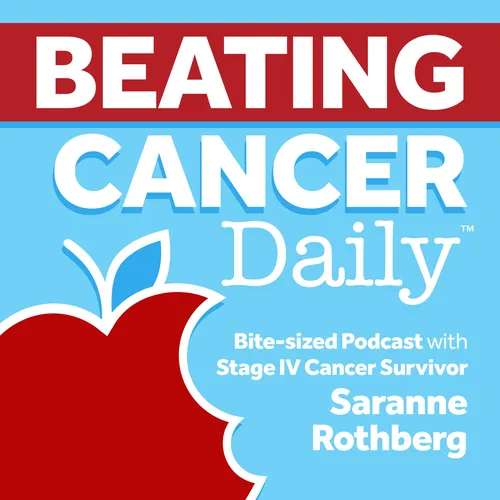NEW: Scrutinizing Supplements: Cancer Expert Joins Saranne
- Author
- Saranne Rothberg
- Published
- Fri 29 Aug 2025
- Episode Link
- https://blubrry.com/1471708/148019071/new-scrutinizing-supplements-cancer-expert-joins-saranne/
Navigating supplements during a cancer diagnosis can be overwhelming, especially when facing conflicting advice and a barrage of information. Today on Beating Cancer Daily, Saranne tackles one of the most common questions among those newly diagnosed, undergoing treatment, or living as survivors: Should I be taking supplements, and if so, which ones? Certified nutrition specialist and functional medicine expert Jacqui Bryan joins to unpack the complex world of nutritional supplements. Drawing from her personal cancer journey and decades of professional experience, Jacqui guides listeners through how to safely and effectively choose supplements that align with individual health goals—without falling prey to confusing marketing claims or risking harmful interactions during cancer treatments, like chemotherapy. Together, Saranne and Jacqui discuss the value of third-party testing, the necessity of working closely with a healthcare team, and the importance of focusing on food first for optimal healing and wellness, even for those beyond the cancer community.
Jacqui Bryan is a certified nutrition specialist, whole health educator, functional medicine expert, certified health coach, and registered nurse. With over 22 years of survivorship after her breast cancer diagnosis, Jacqui brings both personal and professional insight to cancer wellness. She has appeared in over 90 episodes of Beating Cancer Daily, empowering clients and listeners to make informed, individualized nutrition choices. Jacqui specializes in guiding people to use food as medicine, supports them in safely navigating supplement use, and is a trusted resource for evidence-based holistic health.
“I am a food first practitioner. My preference is that people consume a diet that is going to nourish their bodies.” – Jacqui Bryan
Today on Beating Cancer Daily:
· Choosing supplements should be a personalized decision based on specific health goals, not generic recommendations.
· Third-party testing (USP, NSF International, ConsumerLab.com) is critical for ensuring supplement safety and label accuracy.
· Start with one supplement at a time and monitor your body’s response before layering additional products.
· Communicate all supplements use with your healthcare team to avoid harmful interactions, especially during active treatments like chemotherapy.
· Older adults, athletes, those with gut or absorption issues, and individuals with conditions like osteoporosis require tailored supplement strategies.
· Outrageous health claims, celebrity endorsements, or vague “proprietary blends” are red flags when evaluating supplements.
· Regular reassessment through lab tests or tracking symptoms—ensures supplements remain relevant and effective.
· Food should always be the primary source of nutrients, with supplements used to fill clinically necessary gaps, not as substitutes for a healthy diet.
Resources Mentioned:
Third-party testing certifications: USP, NSF International, ConsumerLab.com
NIH supplement information: https://ods.od.nih.gov
Jacqui Bryan’s website: https://jacquibryan.com
ComedyCures Foundation: https://comedycures.org
